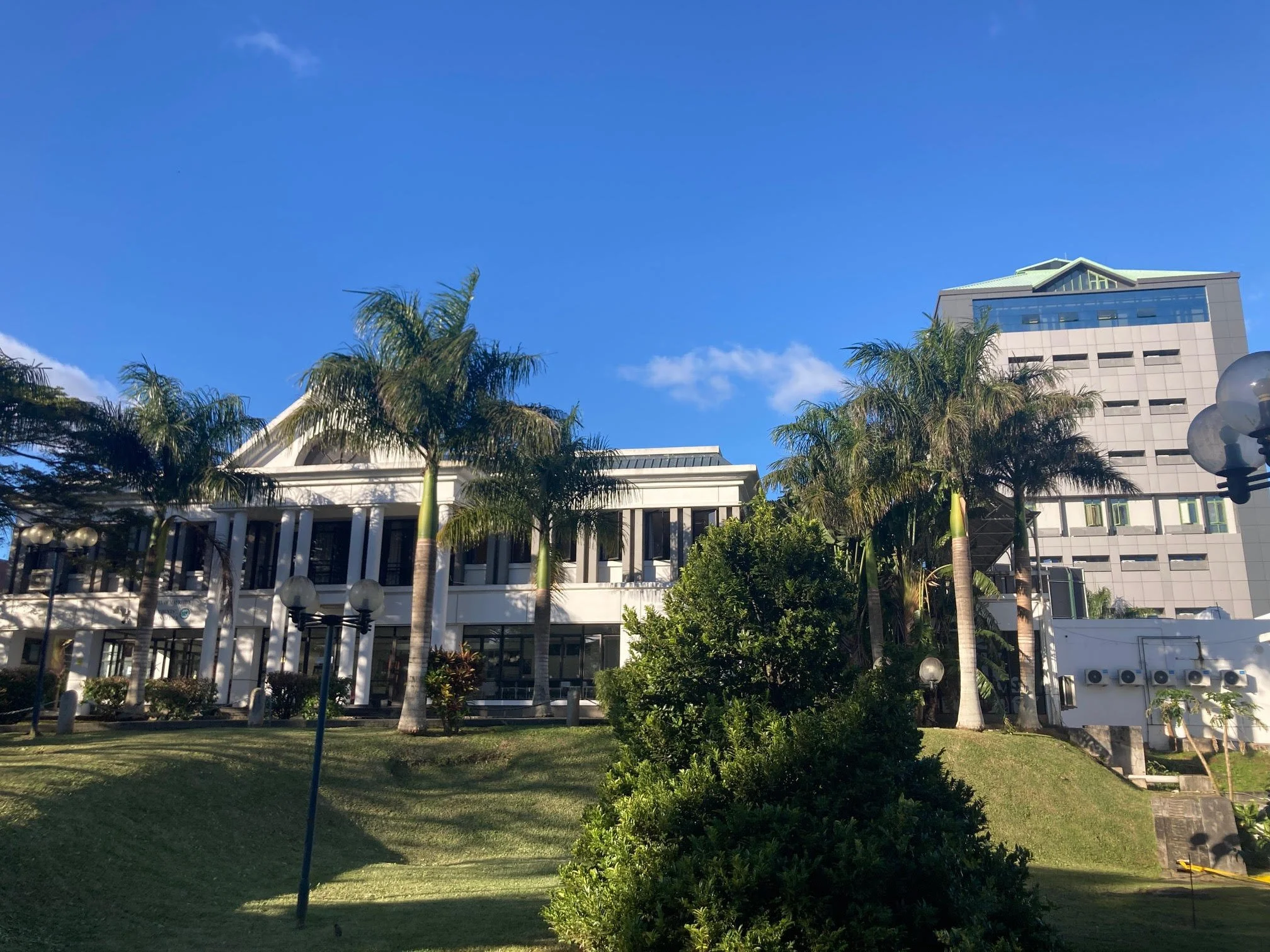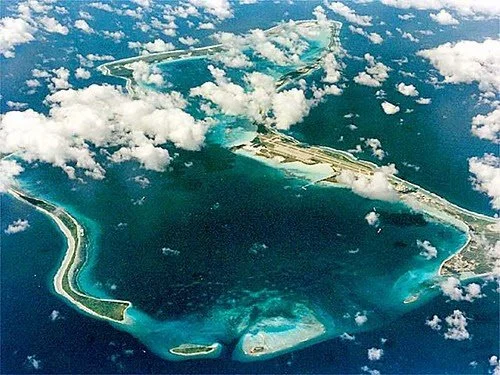‘Maybe Skip That?’ Conferences, Censorship, and the Chagos Archipelago
by Sarah Gray, CHASE Doctoral Researcher at SOAS University of London.
The Chagos Archipelago. Source: Wikipedia.
This is a brief reflection of an encounter with government censorship and the direct application of research ethics that it necessitated. The encounter was unexpected and took me off guard. It went something like this:
“Maybe skip that?” the delegate sheepishly suggested when confronted with a reference to the Chagos Archipelago in their speaking notes. The Chagos Archipelago is a group of islands in the Indian Ocean. One of these islands, Diego Garcia, hosts a US military base that was constructed after the Archipelago’s population, the Chagossians, were unceremoniously removed from their homelands and refused the right to return. A bilateral, public and legal debate over the islands and the mistreatment of the Chagossians has evolved in the decades since.
“Maybe skip that” because the conference organisers – a group of academics from the University of Mauritius, the University of the Witwatersrand, Johannesburg and Kings College London – had told all conference participants a few days before to “avoid any reference” to “Chagos, Diego Garcia, or British sovereignty in the Indian Ocean” during the three-day event. The organisers were following instructions from the Government of Mauritius, presumably via the Ministry of Tertiary of Education or, given the centralised nature of Mauritian statecraft, the Cabinet itself.
Adhering to the Government’s censorship order was not their only option. As an open letter from the left wing Mauritian political party Lalit points out, the organisers could have willfully ignored the order and/or sought an injunction against it. Although this may not have seemed so obvious when threatened with the cancellation of an event which, owing to Covid disruptions, was already over two years in the making.
The censorship order sought to muzzle references to the sovereignty dispute between Mauritius and the UK over the Chagos Archipelago. In 1965, colonial Mauritius ceded the Archipelago to Britain during negotiations over constitutional reform that led to the country’s independence in 1968. From the 1970s, in a context of growing Soviet and Chinese influence, the UK and the US developed a military base at Diego Garcia, one the Archipelago’s largest islets. Shortly afterwards, Mauritian politicians began to protest the excision of the Archipelago in international fora. When their lobbying gained little traction, Mauritius turned to litigation. Eventually, Mauritius and the UK put their rival claims to the International Court of Justice. The Court’s advisory opinion delivered in 2019 found that “the process of decolonisation of Mauritius was not lawfully completed when [the island] … acceded to independence” and that “the United Kingdom is under an obligation to … end its administration of the Chagos Archipelago as rapidly as possible”. Though a moral victory for Mauritius, the Court’s opinion is not legally binding so the dispute was not tangibly resolved.
The University of Mauritius. Source: supplied by the author.
In an effort to explain their decision to censor delegates, the conference organisers claimed that “the dispute … remains a highly sensitive and controversial issue in Mauritius”. ‘However, Lalit’s open letter suggests that there is no issue “less sensitive”, stating that both the government and all opposition parties are in agreement “and we are not aware of any Mauritian trade union, association or organization of any kind whatsoever that is against Mauritius’ claim to the Chagos Archipelago.” So why the censorship?
Last year, V-Dem Institute named Mauritius one of the world’s most rapidly autocratising counties. Censorship is the latest in a longer list that also includes “restricting and harassing opposition parties and nongovernmental organizations”. So perhaps the sensitivity lies in discussing the one topic that seems to secure cross-party support.
Many of the conference delegates appeared unconcerned about the censorship restrictions. They carried on, delivering papers on novels, poems, architecture and a host of other areas they deemed unrelated to the continued colonial occupation of Indian Ocean space. Others, chose to amend their papers to meet the request of the conference organisers. These delegates noted any objection to the conditions in which they were presenting papers through subtle resistance with comments like the aforementioned “Maybe skip that?” or “there is one story from Chagos, excuse my French because now we can’t say that word…” Two delegates, myself included, chose to withdraw our papers entirely. In my case this was not an act of self-censorship – if it had been I’d have simply altered my paper – but an act of protest.
I have conducted research at home and abroad in environments where free speech is limited, but a direct request to censor was a first for me. I had not anticipated a conference in nominally-democratic Mauritius being the source of a request to violate academic integrity and independence. A withdrawal from my first post-pandemic in-person conference hosted in the country where my research is based was not an obvious or easy call. I received the email asking if I would change my paper just a few days before my flight to Mauritius. I spoke at length to the conference organisers while I considered their request. I suggested focusing my paper on Mauritian political history rather than on the dispute itself – they said, “great… but maybe not so critical, you know, focus on the conceptual if you can.” That was another red flag. Ultimately, the institutional system kicked in. I emailed my doctoral supervisors. Their responses were rapid, considered and offered from a place of friendly experience. I reached out to my funding body, the Consortium for the Humanities and the Arts South-east England (CHASE). Given I had only two days to spare before the flight, they immediately picked up the phone. I know this is not everyone’s experience within academia, but I felt supported, seen and empowered to take a decision of my choosing.
What historians choose to include and discount in their re-telling of events can have very serious and contemporary impacts. A historian can silence or empower entire communities, discount or raise voices, relegate or centre experiences. Whether you are working in a contested field or not, choices over sources and narrative count. Decisions that I have been making over what to write in or edit out as I draft thesis chapters took on a new meaning in light of this conversation. Ultimately, I was not prepared to “Maybe skip that.”
Aerial image Diego Garcia, largest of the Chagos Archipelago islands. Source: Subtopia.
Editors’ note: CHASE would like to acknowledge the SOAS History Blog and the author, Sarah Gray (CHASE-funded doctoral researcher at SOAS). The original blog post published on 1 November 2022 can be found on the SOAS History Blog here.
For more information on SOAS History Blog, follow this link.
For enquiries about the article, please email soashistoryblog@soas.ac.uk or follow on Twitter and Instagram.
For general enquiries about CHASE, please email enquiries@chase.ac.uk or follow on Twitter.



